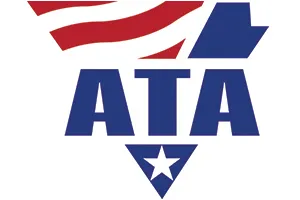Senior Reporter
Contractor Passes IT Systems Test for Military Moves

[Stay on top of transportation news: Get TTNews in your inbox.]
Officials with the U.S. Transportation Command reported that the contractor for a multibillion-dollar military moving contract has passed a test of its information technology systems that had caused an implementation delay for several months.
However, the news has not put to rest concerns expressed by many large, experienced movers that fear they cannot make money because of conditions included in the up to $20 billion Global Household Goods contract awarded to Houston-based HomeSafe Alliance.
Nor does it mean that the program will be fully operational in time for this summer’s peak season for moving military families.
The Transportation Command, which oversees the program, said it will operate this summer on a limited basis, hoping to ramp up the entire program beginning in September.
There were hopes that the moving contract, awarded to HomeSafe in March 2022 after two formal protests by a competitor, would be operational by last summer. Now it’s unknown when the contract will become fully effective, or how many large U.S. movers will sign up with the contractor because of concerns that the system is thought by many to be unworkable and unlikely to net movers and drivers adequate financial returns.
HomeSafe Alliance is thrilled to make our first household goods moves this spring! We are excited to deliver exceptional move experiences to service members, DoD civilians, and their families. Read more here: https://t.co/Po9BnQe2Vv — HomeSafe Alliance (@homesafe_all) February 22, 2024
One of the movers’ top concerns is the master service agreement that the contractor wants them to sign, said Bill Lovejoy, chairman of American Trucking Associations’ Moving and Storage Conference.
“It was written by KBR, and it’s an agreement that no decent lawyer would tell you to sign,” said Lovejoy, CEO of San Diego-based Republic Moving and Storage.
KBR is the lead joint venture partner with HomeSafe tasked to improve yearslong problems with moving military families across the globe.

Lovejoy
In addition, Lovejoy said the liability insurance requirements are excessive. To enroll in the contract would require a mover to have a minimum $3 million in liability insurance, he said.
Plus, he said the Service Contract Act would require movers to pay employees at costly rates, making the contract’s pricing “not compensatory.”
“You have to be able to pay the drivers according to federal Service Contract Act rates, which are very strict about what you pay,” he said. “You have to guarantee them a wage. If the money’s not there to pay them the wage, then it’s not compensatory.
“The issue becomes, you can’t do the job. It just can’t work. And that’s what the industry is saying. Right now, I’d say the industry is still a no. If they don’t turn it around, they’re going to have big failures.”

An ATA spokesman said, “Military relocations are critical to national security and military readiness, and it is important that the process be as smooth as possible to reduce disruptions for service members and military families. Professional movers are concerned that instead of achieving DOD’s intended goal of incentivizing quality in the moving process, the GHC program’s economics and requirements are creating risk for military families.”
Meanwhile, a HomeSafe spokeswoman said, “The GHC is a significant and necessary change that many military movers have embraced. HomeSafe is committed to fair compensation, and we are confident our rates are fair and provide value to our partners. We conducted a bottom-up, market-based analysis to determine viable rates for performing moves under the GHC. Hundreds of high-quality moving companies — including many in the current military move program — have independently analyzed our rates and determined they can make a profit through our program.
“HomeSafe is lowering our partners’ expenses by providing customer service, free technology, simple invoicing, optimization of truckloads, no cost to sales and predictable work to help them plan shipments in advance. There are zero companies with experience moving under the Global Household Goods contract. The GHC is a transformational program, and companies interested in providing services under the program will need to re-examine the way they do business.”
Want more news? Listen to today's daily briefing below or go here for more info:




